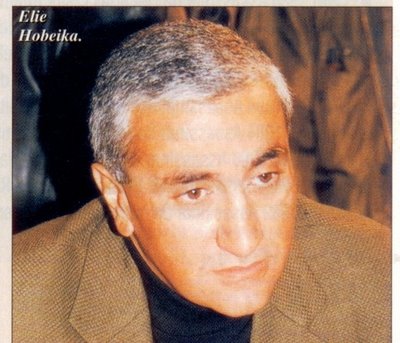 http://www.spingola.com/By_Way_of_Deception.html
http://www.spingola.com/By_Way_of_Deception.htmlThe Balfour Declaration: A Brief Geopolitical History...
By Richard Sale, author of Clinton’s Secret Wars.
When “b” looked over my mention of the Balfour Declaration in my recent post, “Middle East Peace?” he sniffed, “This is not the background at all.” His own addition, however, while of some value, is hardly the background either, ignoring as it does, key geo-strategic considerations.
Yes, the armies of France and Britain were bogged down in the West in 1917 but the military stalemate combined with fears that Russia was about to conclude a separate peace and a desire to curb French claims to Palestine. Out of these concerns rose the British determination to endorse Zionism, and by so doing, legitimize its own presence in Palestine under the cloak of being the sponsor and protector of Jewish self-determination.
Russia was reviled for its anti-Semitism and its welcoming treatment of Jews who made up most of the Cadre of the Communists Revolution...... and the thwarting of Russian expansion was a key British aim. But what harried the British even more deeply was an uneasy surmise that American Jews, many of whom were from Austro-Hungary or Germany, secretly sided with the Central Powers. The British thought that if they could attract the support of American Jews, it might help to bring America into the war and prevent Russia from signing a separate peace that would have resulted in more German pressure on the Western Front.
The Balfour Declaration was approved on Oct. 31, 1917, but only a few months before, the French had alarmed the British when Jules Cambon, the director general of the French Foreign Ministry, issued a statement that said French support of a “Jewish Renaissance of the Jewish nationality” in Palestine would be “a deed of justice.” It was this statement that set the British in motion and ended in the French exclusion from Palestine.
Washington detected the British agenda to expand in the Middle East rather than attempting to further “ the ends of Zionism” and was opposed. Lord Curzon by the way, was also an opponent of the Declaration.
The post by “b” noting that while the British needed Rothschild money to continue the war, but “b” ignores the more important role played by Dr. Chaim Weizmann an active Zionist, in bringing the Declaration to the light of day. Yes, Weizmann had important contacts with the Rothschild and other major European financiers, but he also was a chemist, an expert in acetone, a crucial ingredient of cordite, the gunpowder needed to fire the huge British field guns in their Western front battles. His expert knowledge was of use.
Weizmann, like Curzon, had serious misgivings about the Declaration, saying, Palestine is not Rhodesia and the 600,000 Arabs who live there have exactly the same right to their homes and we have to our national home.”
The British had in no way consulted the Arabs of the region before the letter containing the Declaration was sent to Lord Lionel Rothschild who headed the British Zionist Federation. The initial Arab reaction was “bewilderment and dismay” according to an Arab historian. It was only a year later that about 100 Arab dignitaries sent a letter of opposition to the Declamation.
The difficulties continued, however. By April of 1919 that Major-General Sir Arthur Money wrote to Lord Curzon, “the Palestinians in fact desire Palestine for themselves and have no intention to be thrown open to hordes of Jews from Eastern and Central Europe. To implement the Declaration would involve Britain in the use of force “in opposition to the will of the majority of the population,” said Money.
Many of the British who pushed the Declaration were in fact anti-Semites who believed the Jews controlled the world of finance through a vast and shadowy network ....
Some Jewish and other people say Lebanon expelled Jews, but that’s not accurate. Most Lebanese Jews left in the civil war – to France, Canada, Brazil and New York, but they, their children and their children’s children have an inalienable right of return. And people own property still in Lebanon and some come for holidays.
Your post also says Maghreb Jewish community was expelled – you need to meet some Jewish people from Morocco. Many left for a better life in the democratic West and in Israel, but no one has lost their right to live & work in Morocco – nor their children and children’s children. Moroccan nationality is passed down and isn’t broken – regardless of the religion.
I hope the move toward democracy in Tunisia, Egypt – and hopefully Syria and elsewhere in the region, should be good for Jewish-Arab relations in the future. I heard on the radio a story about an Italian-based psychologist called David Gerbi (born in Libya) who is helping the resistance hospitals in Bengazi and he was quoted as saying he hopes to be a voice for the revival of Jewish life in Libya. Good for him! He sees a future in a free country, free from tyranny.
The deterioration in Jewish-Arab relations is an unfortunate consequence of the success of the Jewish national movement in Palestine. Yehouda Shenhav has done excellent research on the topic which you would find interesting to read.
http://prrn.mcgill.ca/research/papers/shenhav.htm






Two issues with this piece says "b"....:
http://www.promisedlandblog.com/?p=803
"When the British issued the Balfour Declaration in 1917 its real purpose was not to give the Jews a homeland, but to bolster British ability to fight the Germans."
That is not the real background. Britain urgently needed money to continue the war and the Rothschild bankers demanded signing of the Balfour declaration to extend Britain's credit line. Most of the Rothschild family were eager Zionists and the bought land in Palestine and financed a lot of the first Zionist state structures there.
"the question of Israel’s soaring construction of Israeli settlements on the disputed land of the West Bank."
That is Zionist propaganda. The West Bank land is not disputed at all. All international law says it is Palestinian land and that Israel has no rights to it. That is also the official position of every government in this world except Israel's current one.
To call this "disputed" is taking the Zionist site.